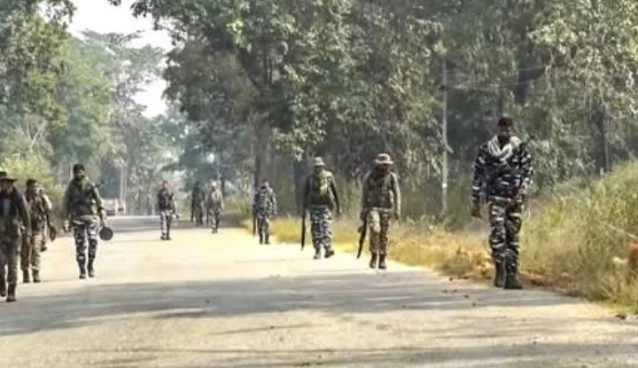Eight suspected members of the banned CPI (Maoist) group were killed in an encounter with security forces in the Lugu Hills area of Bokaro district, Jharkhand, on April 21, 2025. The operation was conducted by a joint team of the Central Reserve Police Force (CRPF), including the 209 Commando Battalion for Resolute Action (CoBRA), and the Jharkhand Police.
Among those killed was Vivek alias Prayag Manjhi, a central committee member of the Maoist organisation, who carried a reward of ₹1 crore. Other individuals killed included Arvind Yadav alias Avinash (₹25 lakh reward), Sahebram Manjhi alias Rahul Manjhi (₹10 lakh reward), as well as Mahesh Manjhi, Talu, Ranju Manjhi, Gangaram, and another individual identified as Mahesh. The identities were confirmed by police based on intelligence and past case records.
Security personnel recovered an AK-series rifle, three INSAS rifles, one self-loading rifle (SLR), eight country-made firearms, and a pistol from the site.
The exchange of fire reportedly began around 5:30 a.m. According to Jharkhand Director General of Police Anurag Gupta, no casualties were reported among security personnel. He stated that this encounter significantly weakened Maoist presence in the North Chotanagpur region and that operations would continue in the Saranda area.
Union Home Minister Amit Shah commented on the operation via social media, referring to it as a significant achievement in the ongoing campaign against Naxalism.
Vivek, originally from an Adivasi background, had been active in the Maoist movement for over four decades. His spouse, identified as "Chinta Di," is currently in custody and reportedly undergoing medical treatment for cancer.
While state officials claim Maoist influence is diminishing in Jharkhand, some commentators argue that the movement retains grassroots support and may regroup despite recent losses.
---
*Freelance journalist


Comments